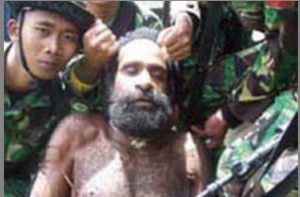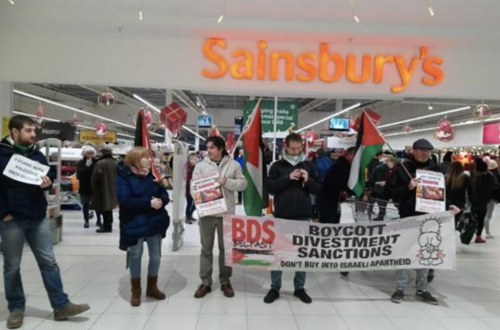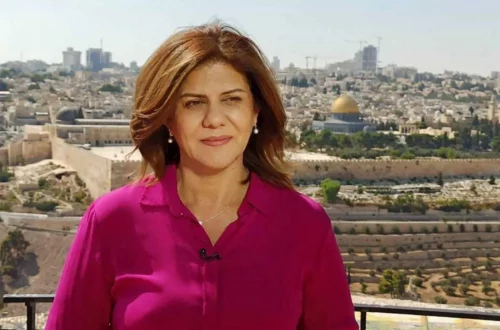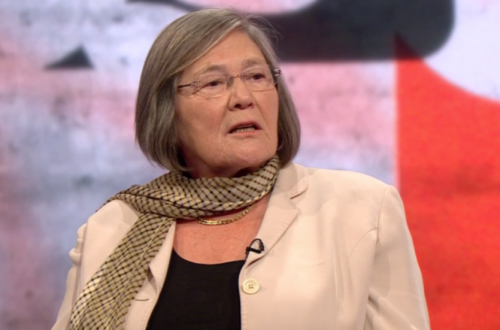This is a guest post by Adam Perry
It is a sad indictment that one of the worst global atrocities of the latter part of the Twentieth Century also remains one of the least known.
One of the most brutal ongoing genocides barely registers a blip on the global radar. How many have even heard of the West Papuan plea for freedom?
In 1961, West Papua was promised independence by its former Dutch colonists.
The international community handed administration to the United Nations Temporary Executive Authority (UNTEA), and signed the New York Agreement in 1962 promising to provide a plebiscite allowing Papuans to determine whether they wanted independence or union with Indonesia.
However, in 1963 West Papua was taken over militarily by Indonesia and was illegally occupied.
During the so called “Act of Free Choice” in 1969, the Indonesian government claimed that West Papuans were too “primitive” to cope with democracy and handpicked just 1,026 West Papuan elders and forced them at gunpoint to vote in favour of integration with Indonesia.
The West looked away even though the United Nations observers conceded that the individuals were placed under duress and forced to vote yes to annexation.
It was the time of the Cold War, with Indonesia tilting towards the Soviets and it was deemed that appeasing Indonesia was more important than self-determination for the people of West Papua. There was and still is the matter of the rich natural resources in the region, including one of the biggest gold mines in the world which is still subject to an extremely profitable partnership between the US and Indonesia.
Since 1963, an estimated 500,000 West Papuans have died at the hands of the brutal Indonesian occupying forces, accounting for more than 25% of the population. These numbers have been ratified by several studies and human rights groups (Including ‘The International Association of Genocide Scholars’ and Yale Law School. Daily killing, torturing and imprisonment without trial by the Indonesian military and police carries on with no consequences and little condemnation.
While the Indonesian government continues to brutalise and persecute any West Papuan that calls for freedom, many bravely continue to do so without registering barely a blip among international human rights organizations.
Earlier this year there were mass arrests and torture of 116 Papuans in the Timika area. Villages were burned to the ground and a number of people were massacred or tortured.
Stories are coming out of the region on a daily basis, only last week 2 West Papuans were tortured by Indonesian police, their crime; trying to stop an illegal gambling game in their own town. Both are in critical condition in hospital. Their families are not allowed to visit them
None of this is reported by our press or appeared in the international media.
Unfortunately, for Papuans, their oppression sits at the heart of international power politics.
Indonesia is an important member of the powerful 57 country-strong Organization of Islamic Cooperation, a nation strategically important for the West and one which the British Government claims shares “common interests and values”.
Indonesia is also constantly described as an important partner in the challenge of global terrorism. However, while Indonesia may provide help to other parts of the world in its fight against terrorism, it is cynically terrorizing a neighbouring territory in one of the most brutal occupations of the modern era.
Papuans are among the most vulnerable members of the human race, some whose only encounter with ‘foreigners’ has been marked with violence, oppression and hatred.
The Free West Papua Campaign asks for one simple thing, that there be a new internationally-monitored referendum and the right of people, like any other in the world, to decide for themselves and self-determination.
The West Papuans have no global coalitions to drive attention to this issue and is faced by the political juggernaut that is Indonesia which ensures this issue is barely mentioned in the international corridors of power.
All that is left is for good people to say enough is enough and call on international bodies, human rights organizations and even your local politicians to raise this issue and place it on the agenda global or at least national agenda.
Jeremy Corbyn, Caroline Lucas, David Amess, Keith Vaz and Diane Abbott are amongst many international parliamentarians who have signed the declaration calling on a referendum for self-determination for the people of West Papua. The Leader of The Free West Papua Organisation Benny Wenda, resides and campaigns from the UK after being granted political asylum in 2003.
Please add your voice below:
https://petition.parliament.uk/petitions/108171
To find out more, please visit:
Paolo Freire, a Brazilian educator and author of the Pedagogy of the Oppressed, which is considered one of the foundational texts of the critical pedagogy movement, once wrote: “Washing one’s hands of the conflict between the powerful and the powerless means to side with the powerful, not to be neutral.”
Thank-you in advance for your support.



